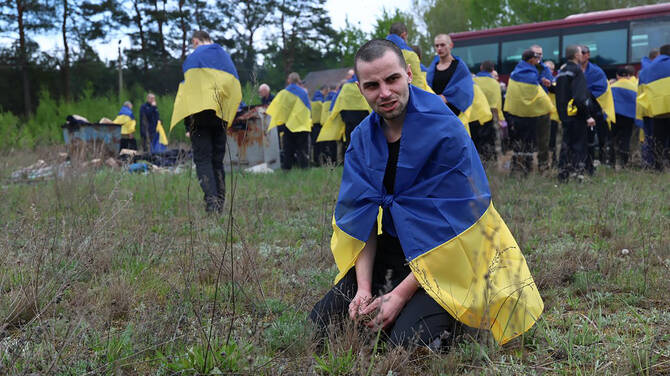DAMASCUS: In a Damascus courtyard, Syrian activists brainstormed strategies to ensure their country does not return to authoritarianism, in a scene unimaginable under president Bashar Assad’s rule.
Since opposition fighters ousted the longtime ruler last month, the Syrian capital’s public spaces have been abuzz with previously banned civil society meetings.
Exiled activists have returned to the country for the first time in years, often leading to moving reunions with friends who stayed behind throughout the civil war.
Now, with Assad out, the activists who spearheaded the revolt want to ensure their voices count.
In the arched courtyard of a traditional Damascus home, Syrian activist Sawsan Abou Zainedin recounted meeting the country’s new leader Ahmad Al-Sharaa earlier this month.
“We stressed the essential role that civil society needs to play in the political transition,” said the director of a coalition of dozens of nongovernmental groups called Madaniya.
And “we insisted on the need to not only name people from the same camp” to form the interim authorities, she added of the Jan. 4 meeting.
Al-Sharaa, who leads a group called Hayat Tahrir Al-Sham, has named people close to him to key ministerial posts.
His armed group severed all ties with Al-Qaeda years ago, and his authorities have sought to reassure Syrians and the international community that they will respect the rights of minorities.
The new Damascus authorities have suspended the Assad-era constitution and the parliament.
Al-Sharaa last month said it could take four years before elections could be held, and up to three years to rewrite the constitution.
He said HTS would be disbanded at a so-called national dialogue conference to bring together Syrians of all political stripes.
His Foreign Minister, Asaad Al-Shaibani, said last week a committee is to be set up to prepare the meeting, for which no date has been announced.
Abou Zainedin said she and Asfari had requested “absolute transparency” in the preparation of that conference.
The Damascus authorities have appointed new officials to head other bodies too.
Lawyer Abdulhay Sayed said the conference would be “crucial” as long as representatives of civil society and unions were invited. Their inclusion would allow for “checks and balances” to prevent a return to authoritarianism, Sayed said.
The lawyer is among more than 300 people to have called for free and fair elections at his profession’s bar association after the new authorities replaced an Assad loyalist with a man of their choice.
“We’re in a constitutional void, in a transition period after 62 years of the Baath party’s rule,” Sayed said.
The national dialogue “conference has to establish a roadmap for an electoral law toward electing a constituent assembly in a year,” he added. “This assembly will be tasked with drawing up a permanent constitution and later could become a parliament.”
Syrian feminists also insisted on participating in all discussions toward building the country at a gathering earlier this month.
They are concerned that HTS’s ideology will exclude women from politics and public life.
Lawyer Joumana Seif said women had “a great role to play” in the new Syria and wanted to “actively” take part in the national conference. “We dream of rule of law,” said the rights advocate, whose father parliamentarian Riad Seif was jailed under Assad’s rule.
Wajdan Nassif, a writer and activist, spoke to fellow feminists after returning from exile.
“We don’t want a new oppressor ... We don’t want to see any more prisons,” she said.
“Syrian women need to take part (in discussions) in their own right ... We don’t want a repeat of the past.”



























